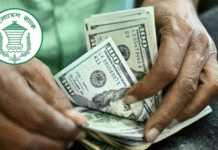The Financial Express
Bangladesh-Nepal rail transit
SYFUL ISLAM | August 10, 2020
The government is set to approve today (Monday) a new entry and exit point for Bangladesh and Nepal’s goods transit through railways, officials have said.
Under the new arrangement, Rohanpur railway station in Chapainawabganj district will be added as another entry and exit point apart from the exiting six such transit stations.
Nepal will use the Singhabad railway station of Malda district in the Indian state of West Bengal as its connecting point with Bangladesh.
According to officials, Bangladesh and Nepal signed a bilateral transit agreement and its protocol back in 1976.
The new arrangement will be made through amending the protocol, and the amendment proposal in this regard is scheduled to be placed in the cabinet meeting today (Monday).
Under the protocol, six entry and exit points – both in Bangladesh and Indian sides – were fixed for Nepalese vehicles to enter and exit from Bangladesh.
But latter Nepal sought to use Rohanpur and Singhabad as another entry and exit point finding it less time consuming than other points.
In January 2010, Bangladesh and India at a meeting between the Prime Ministers of the two countries had agreed to let Nepal use Rohanpur and Singhabad broad-gauge railway link as another transit point.
Later in September 2011, India let Bangladesh and Nepal to use a new rail route for facilitating transit of cargos.
In this regard, an addendum to the memorandum of understanding between India and Bangladesh was carried out to facilitate overland transit traffic between Dhaka and Kathmandu.
In April 2019, Nepal sent a letter of exchange to include the Rohanpur railway station as an additional transit entry and exit point.The ministry of commerce held a meeting on this issue in June 2019 and took no objection certificate from the ministry of railway. After getting vetted from the legislative division, the ministry of commerce recently sent it to the cabinet division for approval.
A senior commerce ministry official told the FE on Sunday that in the recent years, many countries have changed their sourcing points considering the geopolitical issues.
He said Nepal is also shifting its trading partners by lowering dependence on any particular country and nowadays preferring to source more from Bangladesh.
“We need to cash in on the trade potential with the landlocked mountainous nation,” said the official, preferring anonymity. In fiscal year 2018-19, Bangladesh exported goods worth nearly US$38 million to Nepal and imported goods worth around $18 million from there.
Bangladesh mainly exports agricultural products, jute and jute goods, engineering products, pharmaceuticals, paper and paper board, cotton, chemical products, ceramic products, and glass and glassware.
On the other hand, Bangladesh’s major imports include vegetable products, prepared foodstuff, beverages, spirits and vinegar, tobacco, zinc articles, chemical products, sulphur, man-made staple fibre, and soya bean oil.
syful-islam@outlook.com









